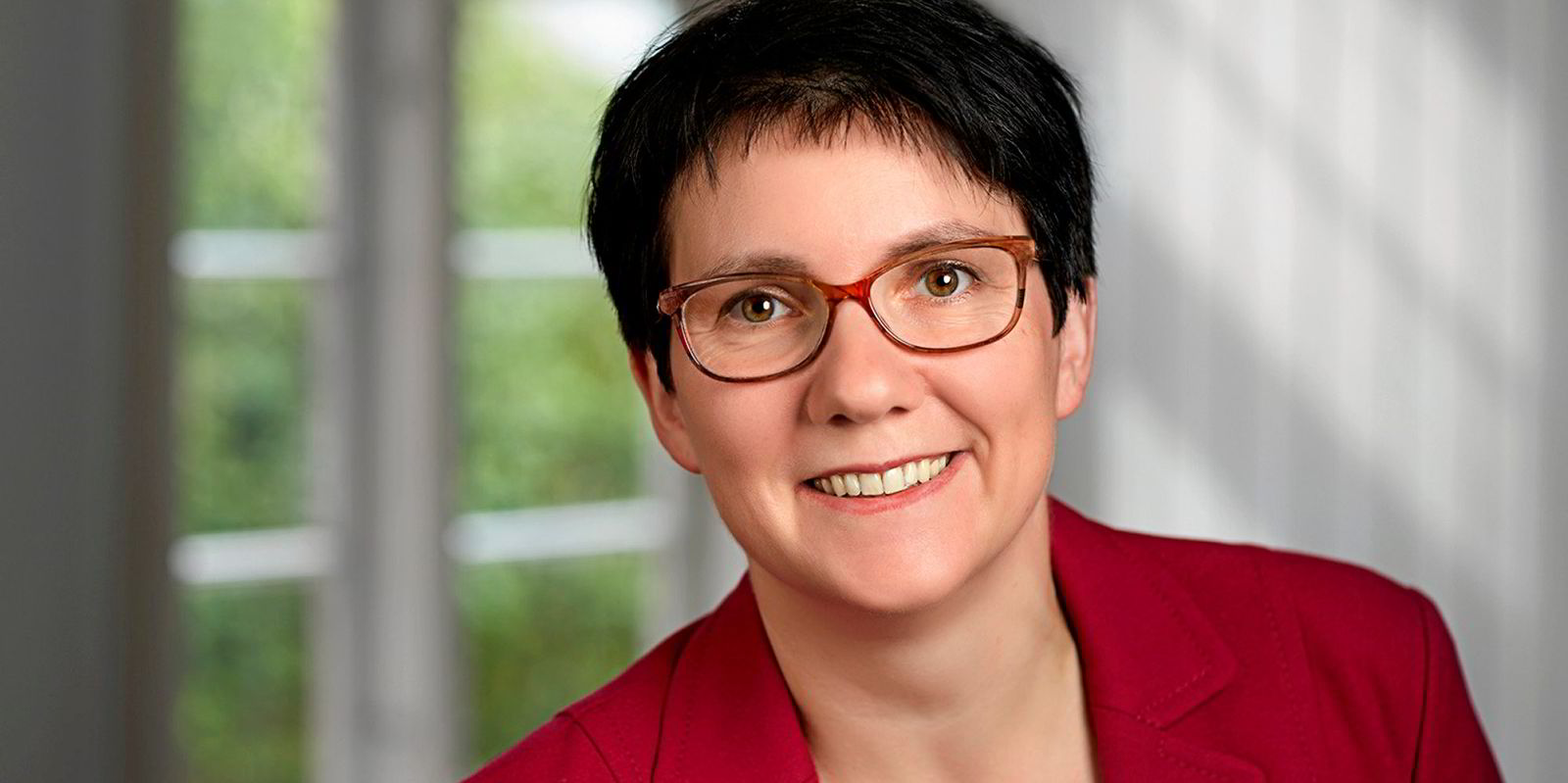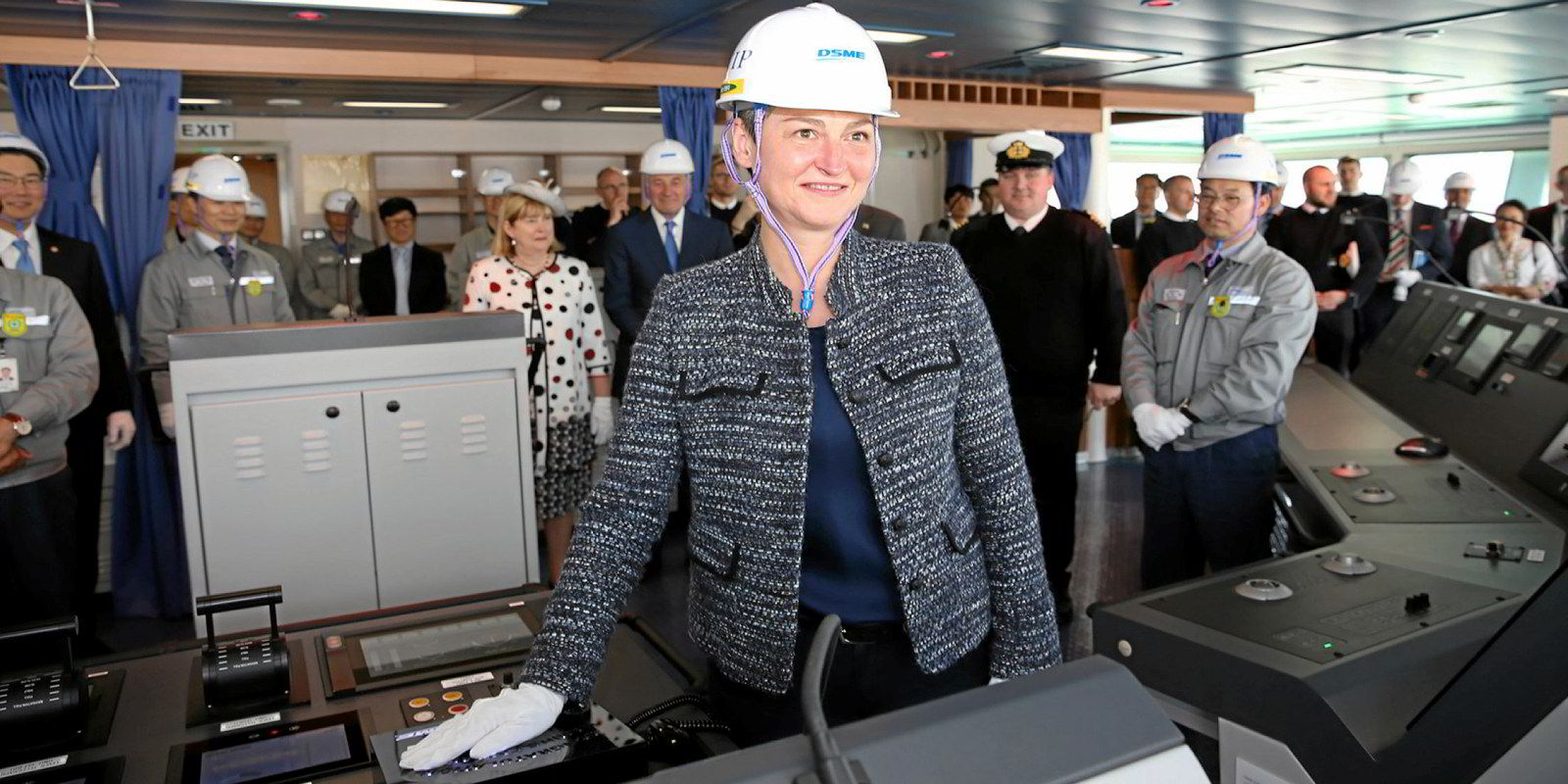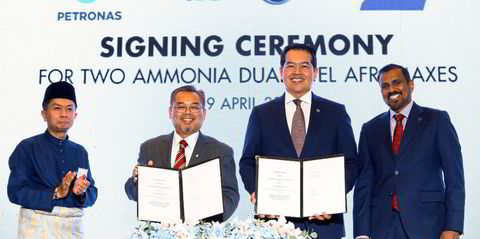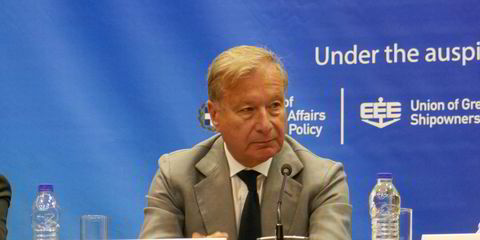In this week's edition of the Green Seas newsletter, we explore the hunt for fuel that will make it possible for AP Moller-Maersk to truly claim carbon neutrality on its methanol-fuelled containership order. Sign up at tinyurl.com/greenseas.
____________________
When Danish liner operator AP Moller-Maersk revealed the design for a series of large, methanol-fuelled container ship newbuildings, it repeated a claim that these pioneering vessels will be "carbon-neutral".
But building the 16,000-teu ships that can run on this alternative fuel — one that ultimately emits CO2 — isn't enough. A team led by Berit Hinnemann, the container shipping giant's head of decarbonisation business development, will have to procure green methanol that will allow it to make that claim.
While emissions tied to the ships' steel are also a factor in their greenhouse gas impact (that counts as scope 3 emissions), fuel is the major driver, so Hinnemann said that is where Maersk is focusing first.
She told Green Seas that the company is evaluating potential sources of green methanol by analysing the full life cycle of the fuel from "well to wake" — from the ingredients used in its production to the emissions on board to ship.
There are two types of green methanol under consideration. E-methanol, a fuel that can be made with renewable hydrogen and captured carbon, can lead to 90% carbon emissions cuts over this life-cycle analysis, Hinnemann said.
The second source is biomethanol, which can be made from biogas or biomass sources that can serve as carbon-negative in the right circumstances. The fuel leads to lower carbon reductions overall, Hinnemann said, but Maersk is working with project developers to improve that.
"We see that we will need both," she said. "We see that biomethanol may be faster to scale on the shorter and medium-term, and e-methanol will probably scale afterwards."
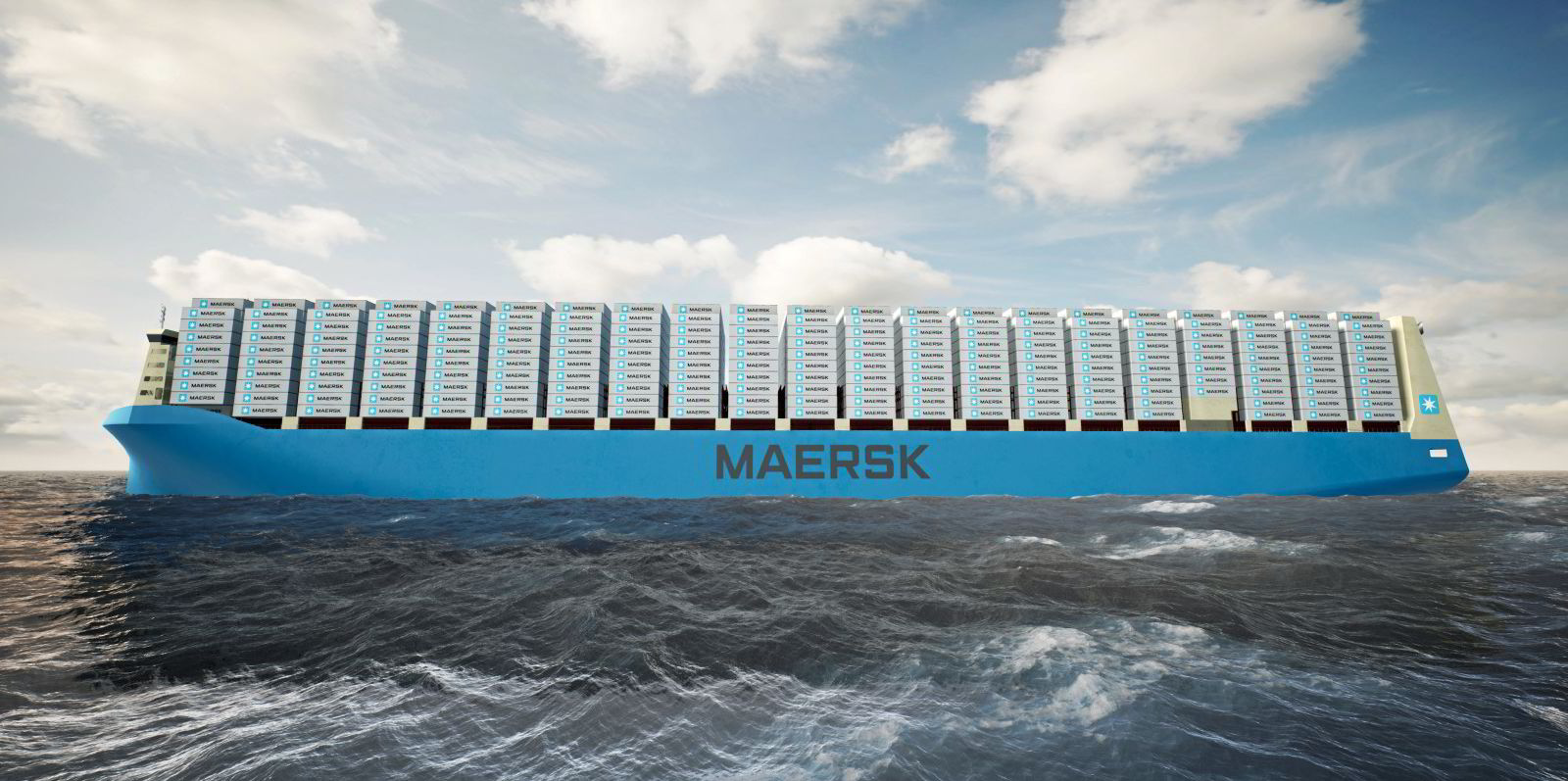
What has been holding back green methanol has been a chicken and egg scenario, in which there has been insufficient demand to develop the fuel in large quantities, and yet insufficient supply disincentivises building ships that can use it.
By placing its $2.8bn order at Hyundai Heavy Industries, Maersk has taken a leap to provide demand to back supply of green methanol.
"We are engaging with project developers globally, and in general what we see is we will need close collaboration across the value chain," she said.
Maersk's move towards methanol fuelling has led to more interest in the fuel, and X-Press Feeders has joined the club with an order for 16 small container ships.
But there is also growing interest in supplying green versions of the fuel, said Methanol Institute chief executive Greg Dolan, whose organisation is a trade association for the methanol sector.
He said about 1m tonnes of biomethanol and e-methanol is expected to be available by 2025, and 2m tonnes by 2030, from just 200,000 tonnes today.
"That is just from announced projects," he said. "Basically, every week there is a new announcement."
He said that biomethanol feedstock, for example from waste streams, is widely available and can be cost-competitive when compared with conventional methanol, which is made from natural gas.

"In some cases … somebody will pay you to take their garbage, so we see biomethanol even today can be affordable," he said.
E-methanol is more costly, though the costs of both green forms of the fuel are expected to come down.
Bryan Comer, marine programme lead at non-profit International Council on Clean Transportation, described Maersk's move towards methanol as a positive.
"It's a wise move if you're looking at what's the path of least resistance from a ship design perspective," he said, pointing to existing machinery, engines and fuel tanks in shipping.

He said methanol can come close to carbon-neutral, though not completely, and unlike LNG, it does not require cryogenic storage or have a problem with methane slip.
But he explained not all green methanol is the same when it comes to doing the maths for life-cycle carbon emissions, and evaluating whether Maersk achieves its carbon-neutral goal will require it to be open about its calculations.
Maersk has already secured green methanol from a biogas plant for its first methanol-fuelled boxship, a 2,100-teu feeder vessel on order at Hyundai Mipo Dockyard in South Korea.
"We need to have them calculate the life-cycle emissions of that feedstock," Comer said. "But do it in a way that their assumptions are transparent, that their methodology is transparent. That way other groups like ourselves can validate their results and see if we agree."
